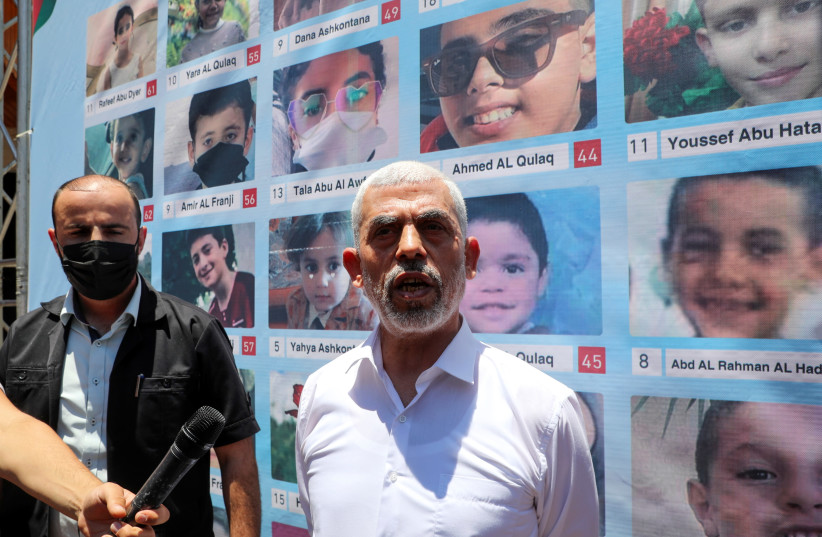While some have been transfixed by the grief and tragedy facing Afghans trying to flee the Taliban in Kabul, some have been celebrating the victory.
There are two types of people celebrating. There are countries that quietly worked with the Taliban to remove the US from Afghanistan. These include Russia, China, Iran, Pakistan and likely Qatar and Turkey as well.
There are also militant or terrorist and extremist groups that either have ties to the Taliban or see in them a kinship and inspiration for global far-right religious extremist victories over the West.
Included among those celebrating are people linked to Hamas and extremist groups in Idlib that are linked to Turkey. Candies and sweets were distributed in Idlib in northwest Syria, an area dominated by Hayat Tahrir al-Sham, according to numerous online reports.
HTS is a descendant of the Syrian equivalent of al-Qaeda. However, in recent years it tried to work more closely with Turkey and the United States. Several US officials in the Trump administration thought it could be an asset against the Iranian- and Russian-backed Syrian regime.
This was Cold War thinking: Use the jihadists against the Russians; use the Sunnis against the Shi’ites.
Nevertheless, there was quiet outreach. There was also one problem: The US sees HTS as a terrorist group, and now the Biden administration has also sanctioned Turkish-backed Ahrar al-Sharqiya, another extremist group.
This presents an embarrassing question for US policy-makers who still see Ankara and its ruling AKP Party as an ally. Ankara has backed Hamas and extremists in Syria who support the Taliban.
Meanwhile, the US has been working in Syria with the Syrian Democratic Forces. The US is not only a close ally of Israel but also works with the Palestinian Authority Security Forces against Hamas.

There is an inherent contradiction between backing both sides, and working with those who back the Taliban, while also fighting the Taliban. But this contradiction often underpins US policy, as when the US works with Pakistan, whose intelligence service helped create and back the Taliban.
Be that as it may, what matters is that these groups see the Taliban victory as helpful to their own cause. Hamas leader Ismail Haniyeh has congratulated the Taliban for ending the US “occupation” in Afghanistan. Clearly, he is also talking about the Israeli “occupation” and the idea that similar Taliban-like steadfastness will prevail over Israel.
There was even a phone call between Haniyeh and Taliban leader Abdul-Ghani Baradar on Monday.
“Haniyeh said the end of the US occupation of Afghanistan ‘is a prelude to the demise of all occupation forces, foremost of which is the Israeli occupation of Palestine,’ according to the website of Hamas,” Turkish media outlets reported.
Turkey’s media is watching this relationship closely. It wonders whether the renewed rise of the Taliban might fuel other Muslim Brotherhood-linked groups, from Idlib to Gaza, Egypt and the Sahel and beyond.
That is a big question. Will global “jihadist” movements now see more support and a new surge? These groups are now in their third generation of global extremism.
This began in the period before the 1980s and gained steam in the ’80s and among a new generation in the ’90s with the rise of al-Qaeda and the belief that these extremist groups could play a role in wars from Algeria to Egypt, from Chechnya to Bosnia and all the way to the Caucasus and Philippines. But most of these groups have been pushed back.
The third generation of extremists came to support ISIS. So will a new generation really be inspired by the Taliban, Hamas, HTS and other groups? This remains to be seen.
